Debate Kit: Is Animal Agriculture Harmful to the Environment?
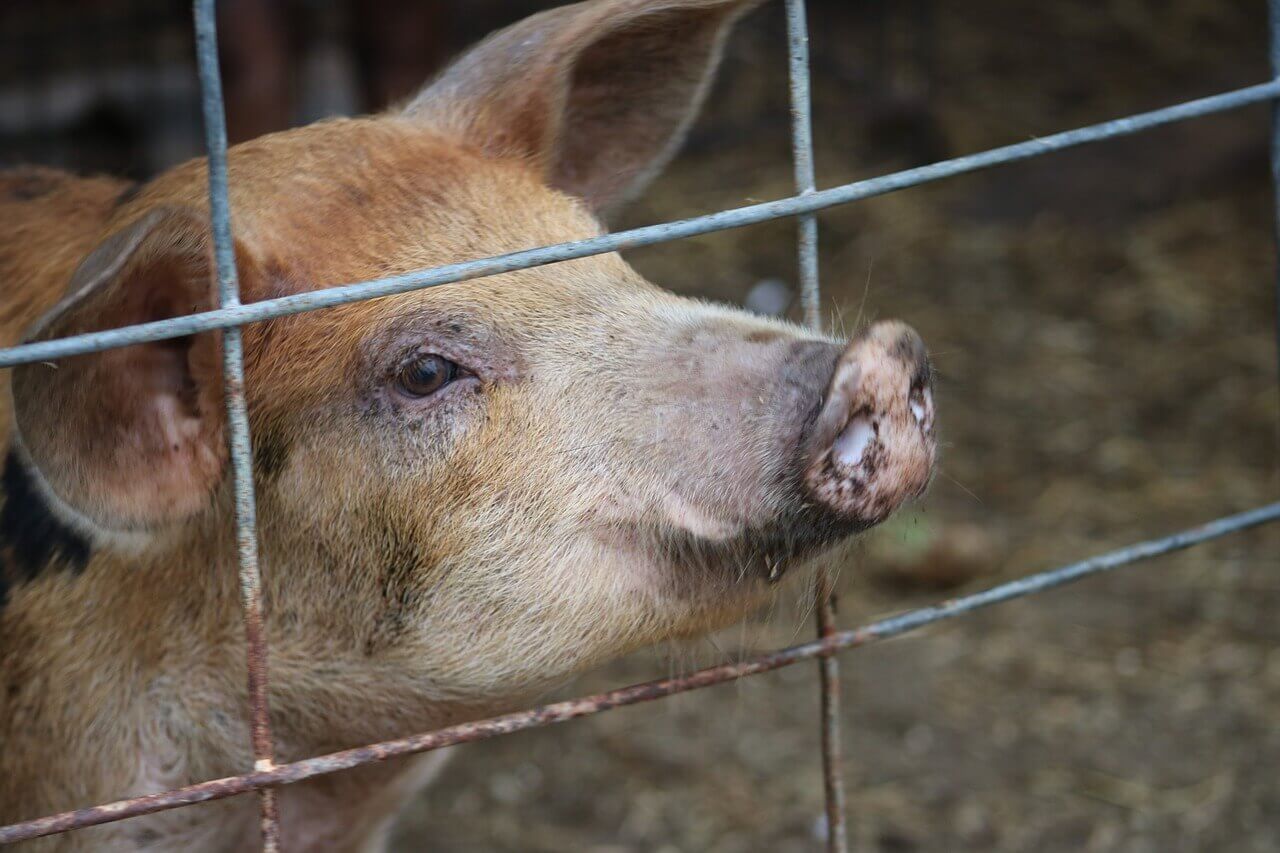
Free Debate Kit: Exploring the Environmental Impacts of Eating Animals
A hot topic in classrooms and on the minds of the public is the impact of animal agriculture on the environment. Here at PETA, our core belief is that animals are not ours to use. We know that many schools assign debates on topical issues to help their students learn to speak and write persuasively, develop research skills, and recognize multiple sides of a controversial or multifaceted issue—and the impact of various industries on the environment is certainly one such topic. This student debate kit lists a variety of resources that can be shared with students to support the argument that animal agriculture is harmful to the environment and that eating vegan is the solution.
Resolved: Animal agriculture is cruel, unsustainable, and bad for the environment; humans should shift to vegan eating.
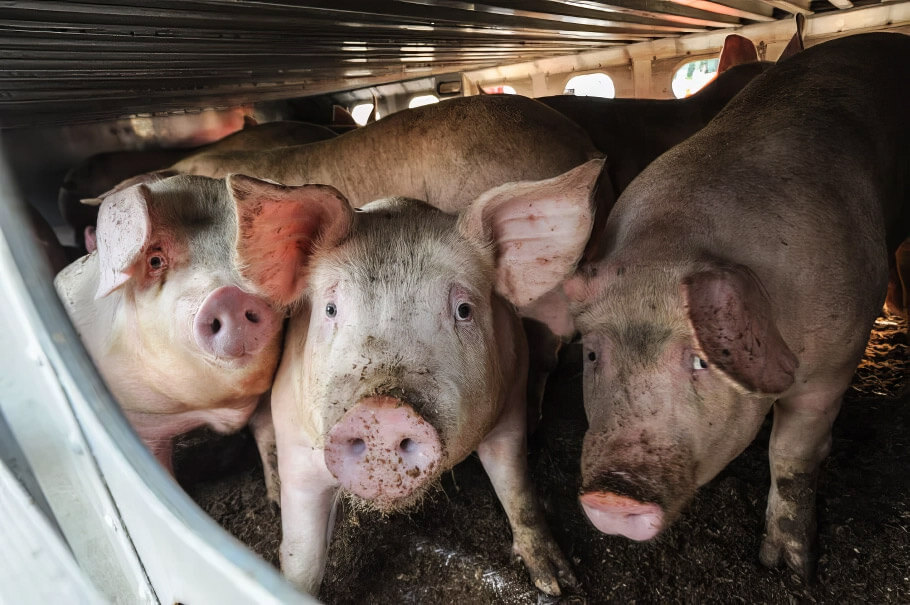
Affirmative Argument
Animal agriculture requires massive amounts of land, food, energy, and water; results in polluted land, water, and air; and causes immense animal suffering. Even the United Nations (U.N.) has acknowledged that raising animals for food is “one of the top two or three most significant contributors to the most serious environmental problems, at every scale from local to global.”
Animals exploited for food in the U.S. alone produce more than 10 times as much excrement as the entire human population of the United States does—and with no animal-sewage processing plants, it’s most often stored in waste “lagoons” or sprayed over fields, polluting the land, air, and water. Globally, animal agriculture is responsible for more greenhouse gases than all the world’s transportation systems combined.
Eating meat also wastes valuable resources. It takes up to 13 pounds of grain and 2,500 gallons of water to produce just a pound of meat. Growing water-intensive crops simply to feed animals who are raised for food consumes more than half the water in the U.S. According to the Environmental Protection Agency, agricultural runoff is the number one source of pollution in our waterways—and it can contaminate groundwater with viruses and bacteria.
Reducing intensive meat production is simply not enough to save the environment. The sheer quantity of animals required to satisfy people’s desire for animal-derived foods makes humane, environmentally responsible practices impossible. For profitability, the meat, egg, and dairy industries crowd the largest number of animals into the smallest space possible, leading to massive water pollution, soil erosion from the massive number of crops needed to feed these animals, and other ecological disasters.
We can all help stop climate change and pollution and help heal our planet by choosing vegan foods. A report by the U.N. concludes that a global shift toward a vegan diet is vital if we are to combat the worst effects of climate change. In addition, the National Audubon Society, the Worldwatch Institute, the Sierra Club, the Union of Concerned Scientists, and even Al Gore’s Live Earth say that raising animals for food damages the environment more than just about anything else that we do. If people are serious about protecting the environment, the most important thing that they can do is stop eating meat, eggs, and dairy “products.”
Become an ‘Expert’
Use the following links to conduct research on general information about the impact of animal agriculture on the environment and prepare logical arguments:
- 4 Reasons People Who Care About the Planet Should Stop Eating Animals
- Climate Change and Animal Agriculture, Explained
- Cowspiracy: The Facts
- Facts on Animal Farming and the Environment
- Fight Climate Change by Going Vegan
- Meat and the Environment
- Veganism and the Environment
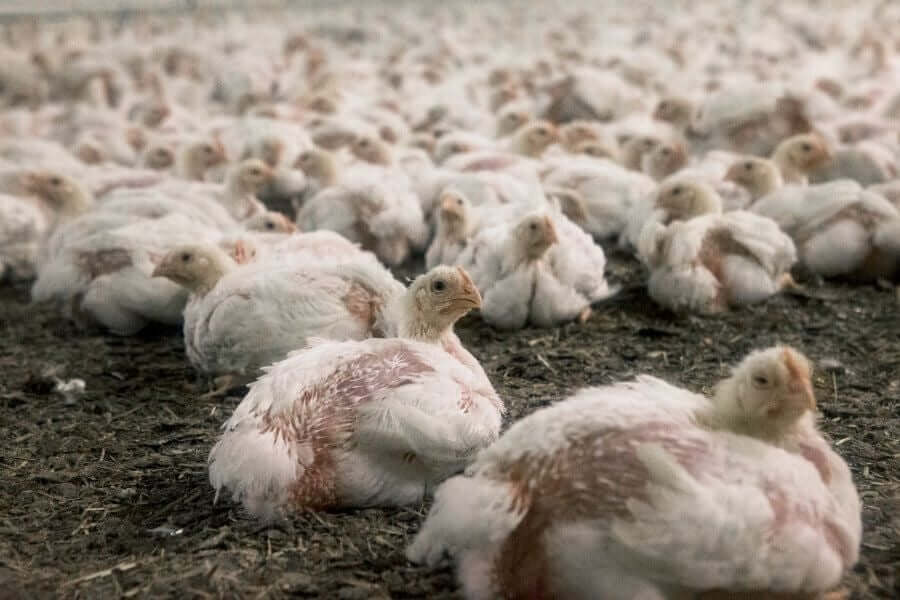
Build Your Case
Use the following links to gather evidence and examples to support your position against animal agriculture in regard to the environment.
Research Articles, Scholarly Articles, and Investigative Analysis
- Agriculture Is the Direct Driver for Worldwide Deforestation
- Analysis and Valuation of the Health and Climate Change Cobenefits of Dietary Change
- Fuel Use and Greenhouse Gas Emissions of World Fisheries
- Impacts of Waste From Concentrated Animal Feeding Operations on Water Quality
- Livestock’s Long Shadow: Environmental Issues and Options
- Report Shows That Chicken Producers Pollute Our Water More Than Big Oil Co.
- Sustainability of Meat-Based and Plant-Based Diets and the Environment
- The Opportunity Cost of Animal Based Diets Exceeds All Food Losses
- A Vegan America Could Feed 350 Million More People, Study Reveals
Statements From World Leaders and Organizations
- 196 Countries Agree: Eat Your Way to a Cooler Planet
- Barack Obama Urges World to Eat Less Meat
- Danish Politicians Survive 22-Day Vegan Diet Challenge
- UN Urges Global Move to Meat and Dairy-Free Diet
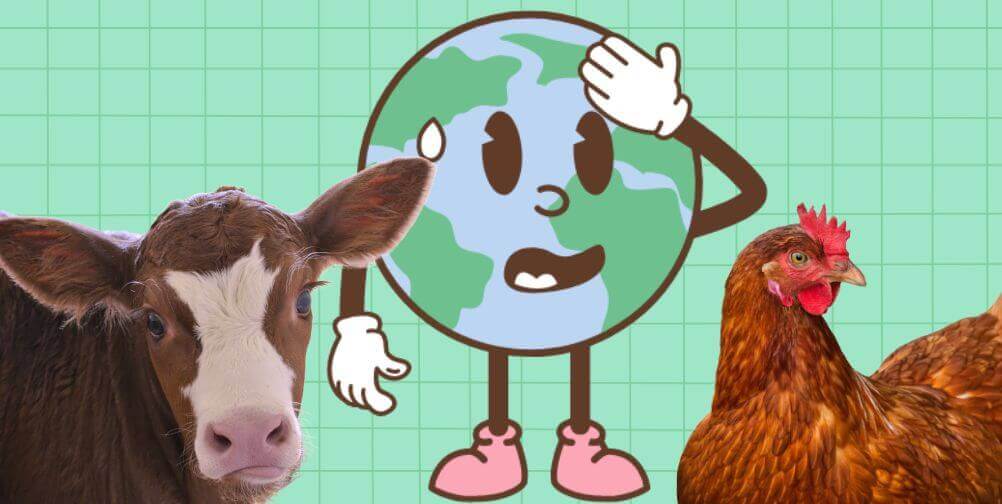
Investigative Reports and Court Cases
- A Million Tons of Feces and an Unbearable Stench: Life Near Industrial Pig Farms
- Cows Forced to Live in Their Own Waste at Dairy Farm
- Deploying Drones to Get an Overview of Factory Farms
- Dirty Business: The Livestock Farms Polluting the UK
- Government Efforts to Curb Threat From Livestock Waste Bog Down
- Investigation: How the CAP Promotes Pollution
- Jury Awards Hog Farm Neighbors $50 Million
- Tyson to Pay Half a Million in Fish Kill Settlement
Additional Evidence of Unsustainability and Environmental Damage
- 10 Shocking Stats You Need to Know About Water
- Allowing Livestock to Graze on Public Lands Is a Major Problem—Why Is It Still Happening?
- Animal Agriculture Is Choking the Earth and Making Us Sick. We Must Act Now
- Earth Day and Animal Products Don’t Mix
- How Common Do You Think Drowning in Feces on a Dairy Farm Is?
- How Does Meat in the Diet Take an Environmental Toll?
- Meat Makes the Planet Thirsty
- One Dairy Farm’s Manure Runoff Just Wiped Out 60,278 Fish
- Sustainable Table: Waste Management
- Sustainable Table: Agriculture and Biodiversity
- Vast Animal-Feed Crops to Satisfy Our Meat Needs Are Destroying Planet
- Report Shows That Chicken Producers Pollute Our Water More Than Big Oil Co.
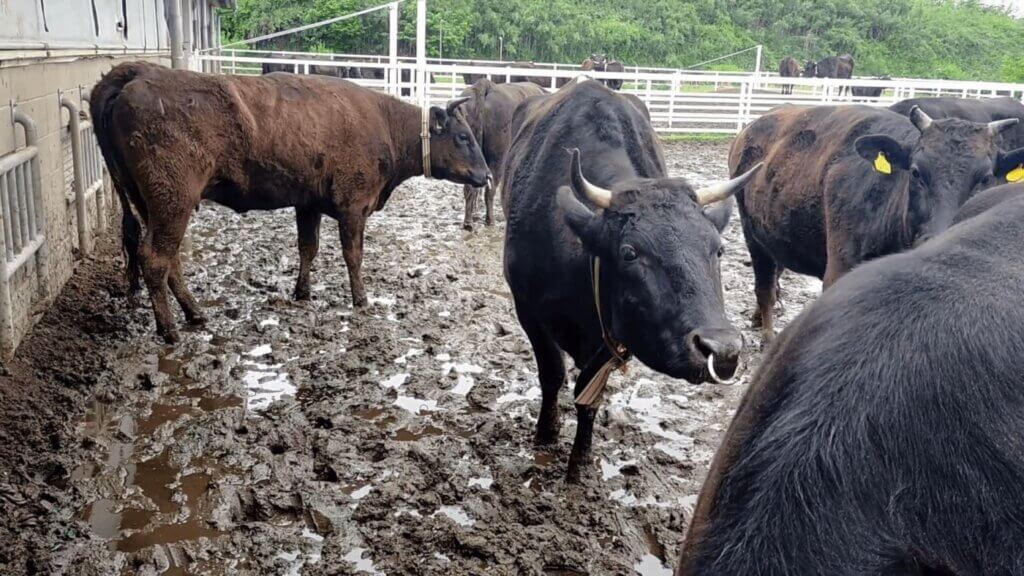
Finding Solutions
Use the following resources to help build a proposal suggesting solutions to issues that could allegedly arise if humans stopped using animals for food:
- 4 Consumer Trends Driving the Rapid Rise of Sustainable Plant-Based Foods in America
- Center for Biological Diversity: Pledge to Take Extinction off Your Plate
- Meat the Disruptors: 15 Startups Shaking Up the $90Bn Global Meat Industry
- Memphis Meats to Bring Clean Duck and Chicken Meat to Stores by 2021
- Study Suggests if Everyone Went Vegan, We Could Save 8.1 Million Human Lives per Year
- What Will We Do With All Those Chickens, Cows, and Pigs if Everyone Becomes a Vegetarian?
- Why Wild Earth Cofounder Ryan Bethencourt Is Applying the Science of ‘Vegan Biohacking’ to Pet Food
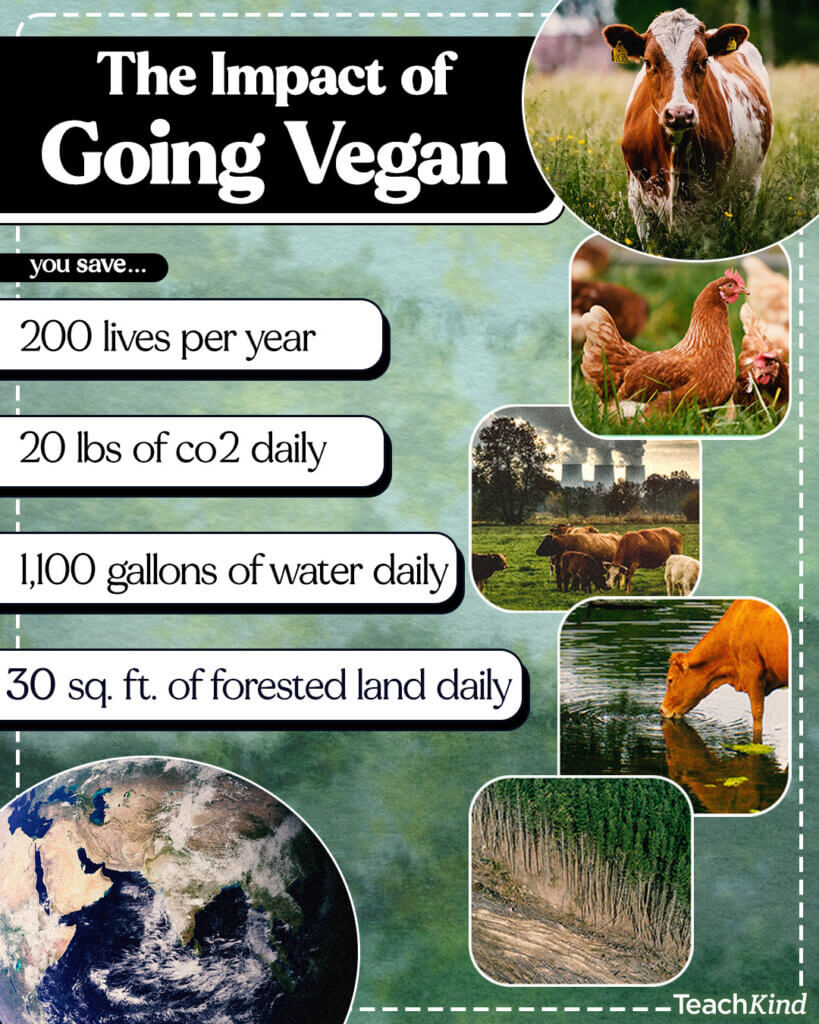
Anticipate Counterarguments and Prepare Rebuttals
Analyze websites that support animal agriculture to determine their stated reasons for justifying the production of meat and other animal-derived “products,” given the industry’s environmental implications. Investigate what farmers, corporations, and government agencies gain by continuing to use animals for food, and think critically about their motivations. Also, examine which other entities benefit from using animals for food (e.g., restaurant chains, pharmaceutical companies, and industries codependent on animal agriculture, such as leather producers). Create a list of typical statements made by parties who believe that continuing animal agriculture is justified despite environmental concerns. Information included in the links in this document can be useful in responding to counterarguments.
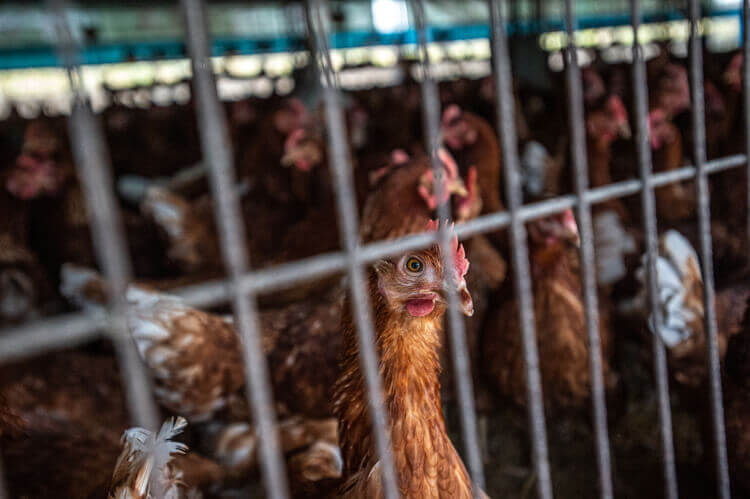
Additional Resources
Websites
Infographics
Videos
- How the Meat and Dairy Industries Destroy the Environment
- You Don’t Have to Work That Hard to Save the Planet
- Water Wasters: Guess Who Tops the List
- Are You Breathing in Dead Pig Bodies?
- Meat’s NOT Green
- The Ethics of Diet
Books
- Eat for the Planet by Nil Zacharias and Gene Stone
- Meat the Future: How Cutting Meat Consumption Can Feed Billions More by the Nicolaas G. Pierson Foundation (Multiple Authors)
Films
- Eat for the Planet by Nil Zacharias and Gene Stone
- Meat the Future: How Cutting Meat Consumption Can Feed Billions More by the Nicolaas G. Pierson Foundation (Multiple Authors)
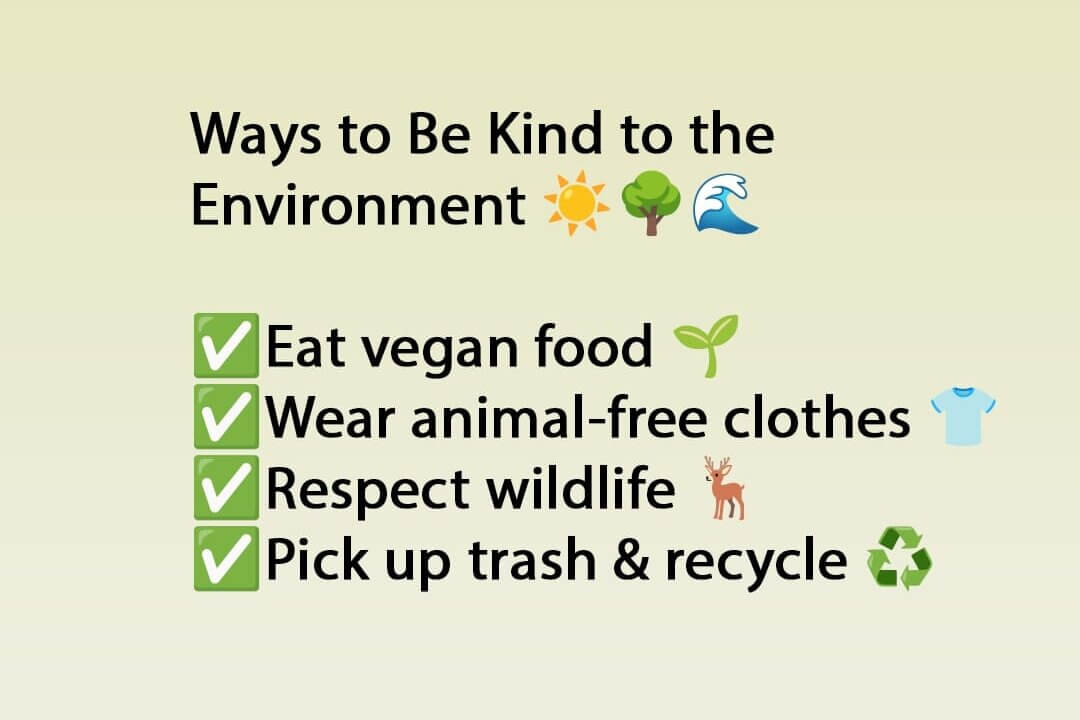
Have students use the curated content in this debate resource kit to prepare an affirmative argument stating why animal agriculture is harmful to the environment and should be abandoned in favor of a global switch to vegan eating. These resources will assist students in supporting their position using scientific, ethical, and philosophical arguments.
Do your students need to conduct an interview as part of their research? PETA staff members are available to students via phone, video, or e-mail to answer questions about our stance on using marine mammals for entertainment. Have students e-mail us directly at [email protected]. If you’d like to contact us on their behalf, please fill out the form below, and we’ll arrange for them to speak with a representative.
Thank you for helping your students speak up for animal rights. Happy debating!
